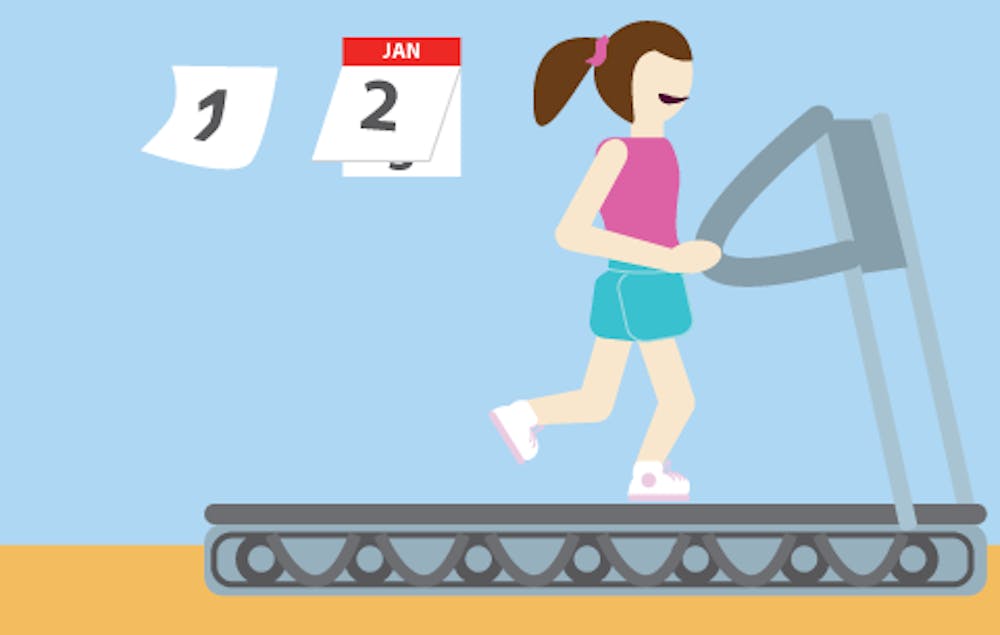
There’s now science behind why you may go to the gym more often at the beginning of a year and immediately after your birthday (not after your 21st, though).
A recent Wharton study shows that the best time to motivate people to strive for their goals are dates that mark the beginning of a new cycle — birthdays, the first days of a week, a semester or a new year.
Katherine Milkman, an operation and information management assistant professor, came up with the idea for the study at a behavioral management conference hosted by Google. A question that emerged was, if you are going to nudge people towards better behaviors, what’s the best time to do it?
Making use of big data from PiLab, a platform developed by Google that offers data for social science researchers, the study shows that Google searches for “diet” is particularly high following a federal holiday or the beginning of a new week, month and year, which proves an increase of interest in goal-setting after dates that offer “fresh start effects.”
In addition, the research shows that people increase their actual commitment to their goals after these fresh starts. Comparing gym attendance records of college students at different times of the year, the study shows that students visit gyms more often immediately after their birthdays and the start of a new semester.
Two other researchers — Harvard Business School professor Jason Riis and fourth-year Wharton doctorate student Hengchen Dai — are collaborating with Milkman on the project titled “The Fresh Start Effect: Temporal Landmarks Motivate Aspirational Behavior.”
Dai explained the gym phenomenon. “We experience a separation in our own life [at new beginnings],” she said, “And we see a big-picture view of life.” The research proves that during fresh starts, people feel disconnected from their past imperfections and are disrupted from focusing on daily trivialities, which enabled them to think about long-term views and motivated aspirational behaviors.
While the findings of the research are intuitive, Dai said. “Everyone shares this intuition, but no systematic research has been done on it.”
She thinks that having an intuitive conclusion can be an advantage when it comes to applying the research. “Although counter-intuitive findings are stimulating, in the case of nudging people towards better behavior, people are more likely to implement it if they understand and resonate with the findings.”
Considering that it is the beginning of a new semester, she suggests Penn students to utilize “temporal landmarks” to improve behaviors throughout the semester. “There are many opportunities to develop a habit throughout the semester. Don’t get discouraged if your first attempt failed. Just restart.”
Riibs says he agrees that students can apply the study’s findings, particularly when they are setting goals at the beginning of the semester. “Keeping things up is extremely difficult, but there are lots of opportunities to get extra enthusiasm throughout the semester. We get them every week and every month. No need to wait for another new year.”
The Daily Pennsylvanian is an independent, student-run newspaper. Please consider making a donation to support the coverage that shapes the University. Your generosity ensures a future of strong journalism at Penn.
DonatePlease note All comments are eligible for publication in The Daily Pennsylvanian.




